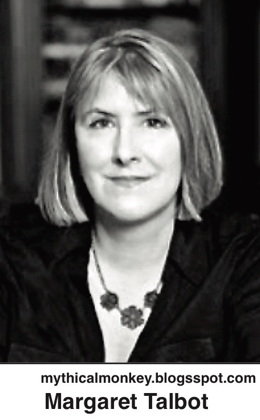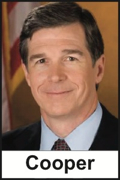Rascals case in brief
In the beginning, in 1989, more than 90 children at the Little Rascals Day Care Center in Edenton, North Carolina, accused a total of 20 adults with 429 instances of sexual abuse over a three-year period. It may have all begun with one parent’s complaint about punishment given her child.
Among the alleged perpetrators: the sheriff and mayor. But prosecutors would charge only Robin Byrum, Darlene Harris, Elizabeth “Betsy” Kelly, Robert “Bob” Kelly, Willard Scott Privott, Shelley Stone and Dawn Wilson – the Edenton 7.
Along with sodomy and beatings, allegations included a baby killed with a handgun, a child being hung upside down from a tree and being set on fire and countless other fantastic incidents involving spaceships, hot air balloons, pirate ships and trained sharks.
By the time prosecutors dropped the last charges in 1997, Little Rascals had become North Carolina’s longest and most costly criminal trial. Prosecutors kept defendants jailed in hopes at least one would turn against their supposed co-conspirators. Remarkably, none did. Another shameful record: Five defendants had to wait longer to face their accusers in court than anyone else in North Carolina history.
Between 1991 and 1997, Ofra Bikel produced three extraordinary episodes on the Little Rascals case for the PBS series “Frontline.” Although “Innocence Lost” did not deter prosecutors, it exposed their tactics and fostered nationwide skepticism and dismay.
With each passing year, the absurdity of the Little Rascals charges has become more obvious. But no admission of error has ever come from prosecutors, police, interviewers or parents. This site is devoted to the issues raised by this case.
On Facebook
Click for earlier Facebook posts archived on this site
Click to go to
Today’s random selection from the Little Rascals Day Care archives….
Click for earlier Facebook posts archived on this site
Click to go to
Today’s random selection from the Little Rascals Day Care archives….
‘Too many therapists with too little expertise’
Sept. 11, 2013
“Why did the epidemic of day care hysteria happen just when and where it did? Why in 1982? Why in the United States?…. You can’t have a panic about day care centers unless you have day care centers. These had become a necessary fixture of American life as more mothers entered the work force, families traveled far distances to chase available jobs and there were fewer available grandmothers to help babysit. Undoubtedly parental guilt in turning over parental responsibility played a role.
“Among therapists, there was concern over previously not taking seriously enough the statements of kids who had actually experienced sexual abuse. There were also too many therapists with too little expertise who were able nonetheless to self-promote and gain authority as fake ‘experts.’ This sad episode is the clearest caution imaginable to any therapist feeling the impulse to jump onto a current or future fad bandwagon.”
– From “Saving Normal: An Insider’s Revolt Against Out-of-Control Psychiatric Diagnosis, DSM-5, Big Pharma, and the Medicalization of Ordinary Life” by Allen Frances (2013)
Despite Dr. Frances’s timidity in exposing the “complete bunk” of multiple personality disorder, his influence across psychiatry is undisputed. But will his words be sufficient to deter the next generation of overreaching therapists from jumping onto the “fad bandwagon”?
Former justice calls for investigation of state bar

csedlaw.com
Robert F. Orr
Feb. 8, 2016
“Bob Orr, a former North Carolina Supreme Court justice, says it’s time for a comprehensive outside review of the state agency that oversees lawyers.
“Orr… is part of a committee looking at legal professionalism as part of Chief Justice Mark Martin’s recently launched review of the state justice system….
“The call for evaluation comes amid questions about the bar’s aggressive prosecution of three defense attorneys who have worked on Racial Justice Act (text cache) and innocence inquiry cases….”
– From “Former NC Supreme Court justice calls for review of state bar” by Anne Blythe in the News & Observer (Feb. 6) (text cache)
Right on, Justice Orr. And thanks to the N&O for its continuing attention to the flagrant self-dealing of the Prosecutors Club, most recently this account (text cache) by Joseph Neff contrasting the bar’s two sets of ethical standards:
“For most of 2015, the North Carolina State Bar vigorously and publicly pressed ethics charges against two anti-death penalty lawyers for what were eventually judged to be unimportant inaccuracies in two sworn affidavits.
“During the same time, the bar privately dismissed complaints that three prominent prosecutors – one running for attorney general, another now a Superior Court judge – used a false affidavit in a racially divisive case that has roiled Winston-Salem for more than a decade….”
I’ve even seen it suggested that the situation demands a separate panel specializing in prosecutorial misconduct (text cache).
![]()
Seeking corroboration isn’t disrespectful – it’s useful
 Dec. 10, 2014
Dec. 10, 2014
“More than a decade ago, I wrote about the McMartin preschool case, and other satanic ritual child abuse accusations that turned out to be false. Back then, the slogan many supporters of the accusations brandished was, ‘Believe the Children.’ It was an antidote to skepticism about real claims of child abuse, just as today, ‘Believe the Victims’ is a reaction to a long history of callous oversight of rape accusations.
“ ‘Believe the Victims’ makes sense as a starting presumption, but a presumption of belief should never preclude questions. It’s not wrong or disrespectful for reporters to ask for corroboration, or for editors to insist on it. Truth-seeking won’t undermine efforts to prevent campus sexual assault and protect its victims; it should make them stronger and more effective.”
– From “Reporting on Rape” by Margaret Talbot at newyorker.com (Dec. 7)
Given the prosecution’s strategic secrecy, the pursuit of corroboration in the Little Rascals case presented an enormous challenge. But news coverage could been far more skeptical and revealing – perhaps even game-changing. The editor of the News & Observer certainly thought so.
Mr. Attorney General, here’s chance to do right
 Aug. 13, 2012
Aug. 13, 2012
I wrote Mark Davis, general counsel to Gov. Bev Perdue, to ask that she issue a “statement of innocence” on behalf of the Edenton Seven. This is Davis’s response: “Because the Attorney General’s Office handled the appeals in the cases you reference in your letter, I think that office is in the best position to evaluate this issue. I suggest you contact them regarding this matter.”
So noted. This, then, is from a letter I sent last week to Roy Cooper, attorney general of North Carolina:
When the Duke lacrosse case collapsed in 2007, you granted the defendants a “statement of innocence.” Although the statement was not a formal legal document, as I understand it, it clearly demonstrated your commitment to making amends for a wrongful prosecution by the State of North Carolina.
I am requesting that you take similar action on behalf of the defendants in the notorious Little Rascals Day Care case.
For more than a decade, beginning in the 1980s, day care centers across the United States were victimized by a wave of wholly unsubstantiated charges of “ritual sexual abuse.” The testimony of child-witnesses, corrupted by misguided therapists, resulted in dozens of convictions and incarcerations.
In all these cases, charges eventually were dropped, convictions overturned or plea agreements accepted with no admission of guilt.
Today there is no dispute among respected psychiatrists, psychologists and social scientists: The defendants were innocent victims of a “moral panic” that bore striking similarities to the Salem witch hunts 300 years earlier.
One of the most prominent of these prosecutions, of course, was the Little Rascals case in Edenton. Between 1991 and 1997 the PBS series “Frontline” devoted a total of eight hours to the plight of the Edenton Seven, leaving millions of viewers appalled at North Carolina justice.
After the longest and costliest trial in state history, Robert Kelly was convicted of 99 counts of child abuse and sentenced to 12 consecutive life sentences. He served six years before the North Carolina Court of Appeals overturned his conviction.
Dawn Wilson was convicted on five counts of child sex abuse and given a life sentence. She served two years in prison or under house arrest. The Court of Appeals also overturned her conviction.
Betsy Kelly and Scott Privott both agreed to plea deals with no admission of guilt.
Charges against Robin Byrum, Darlene Harris and Shelley Stone were dropped.
After the defendants were released, however, prosecutors continued to insist they were guilty. Exoneration was willfully withheld.
The Little Rascals case not only shattered the lives of the defendants, but also left a deep and ugly stain on the reputation of the State of North Carolina.
In 2001, Massachusetts Governor Jane Swift signed a resolution proclaiming the innocence of the victims of the Salem Witch Trials.
In time, such victims of the ritual-abuse day-care panic as the Edenton Seven will surely receive similar exoneration. Why not now? Why not in North Carolina? This is an opportunity to demonstrate moral leadership on a national scale.
I blog about the case at littlerascalsdaycarecase.org, where you will find an extensive archive and updates. I would be eager to provide additional facts by e-mail or to meet with you in Raleigh at your convenience.
Mr. Cooper, I appreciate very much your attention to reviewing this case and to perhaps mitigating the profound injustice suffered by these seven innocent North Carolinians.
I’ll post his response, of course.











0 CommentsComment on Facebook